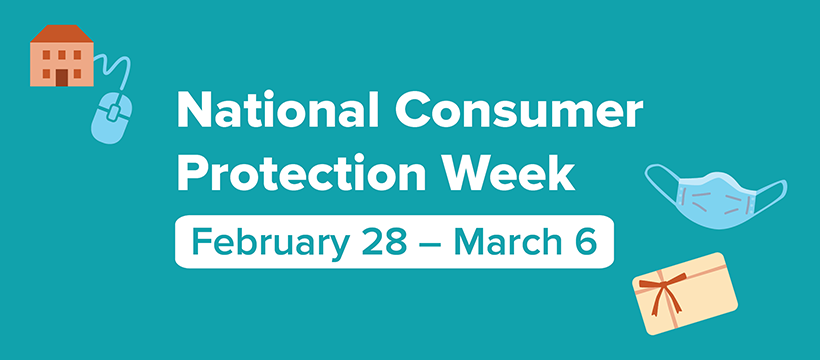This pandemic has brought lots of side effects. Lost jobs, lost income, and lost homes are themes we see around the country — and scammers know just how to take advantage of these worries. Another side effect of the pandemic is isolation, which scammers also like to use to their advantage. During National Consumer Protection Week, which starts today, I’m asking you to join me in fighting isolation to fight scams.
The FTC knows that people who talk about scams are much less likely to fall for them. So, when people of any age are on their own too much, they don’t have the chance to talk things out. And when scammers — who are calling, emailing, and texting — might be a person’s main source of contact, nothing good happens next.
So, today, pick up the phone. Call someone you haven’t talked with in a while. Maybe somebody who might be too much alone. See how they’re doing. And work into the conversation these ideas:
- Scammers have lots of fake stories: early or guaranteed access to vaccines (no such thing), you’ve won a prize (you haven’t), your computer needs tech support (it doesn’t), they’re an online love interest (not if they want money).
- Whatever their story, scammers want you to pay or share your personal information.
- Nobody legit will ever (EVER) tell you to pay by gift card, money transfer, or cryptocurrency.
- No government agency will ever call/email/text to ask you for money, your Social Security, bank account, or credit card number.
After you’ve reached out and shared these ideas, invite your friend or relative to call you back: just to talk, or if something fishy comes up and they want a second opinion. And if someone paid a scammer, please tell them to report it: ReportFraud.ftc.gov.
Tune in this week for more key scams to warn people about. We’ll help you start those conversations.


It is your choice whether to submit a comment. If you do, you must create a user name, or we will not post your comment. The Federal Trade Commission Act authorizes this information collection for purposes of managing online comments. Comments and user names are part of the Federal Trade Commission’s (FTC) public records system, and user names also are part of the FTC’s computer user records system. We may routinely use these records as described in the FTC’s Privacy Act system notices. For more information on how the FTC handles information that we collect, please read our privacy policy.
The purpose of this blog and its comments section is to inform readers about Federal Trade Commission activity, and share information to help them avoid, report, and recover from fraud, scams, and bad business practices. Your thoughts, ideas, and concerns are welcome, and we encourage comments. But keep in mind, this is a moderated blog. We review all comments before they are posted, and we won’t post comments that don’t comply with our commenting policy. We expect commenters to treat each other and the blog writers with respect.
We don't edit comments to remove objectionable content, so please ensure that your comment contains none of the above. The comments posted on this blog become part of the public domain. To protect your privacy and the privacy of other people, please do not include personal information. Opinions in comments that appear in this blog belong to the individuals who expressed them. They do not belong to or represent views of the Federal Trade Commission.
In reply to Thanks so much for informingl by Mbk35
In reply to I would be glad to help you. by Don't use your…
In reply to Good idea. Let us do it by Garush
In reply to I am receiving a lot of scam by Amy and Abuelo
In reply to I am receiving a lot of scam by Amy and Abuelo
In reply to I am receiving a lot of scam by Amy and Abuelo
In reply to My husband has medical by Robynsnyder
You might be able to block some calls from getting through. The FTC has tips on how to block calls on mobile phones, land lines, and on phone service that comes over the internet (VoIP service) at FTC.gov/Calls.
In reply to My husband was recooperating by divisionstreet
You may want to talk to the fraud investigators at the credit card company. This FTC article has information about people's responsibility for deceased family members' debts. Generally, family members aren't obligated to pay the debts of a deceased relative from their own assets.